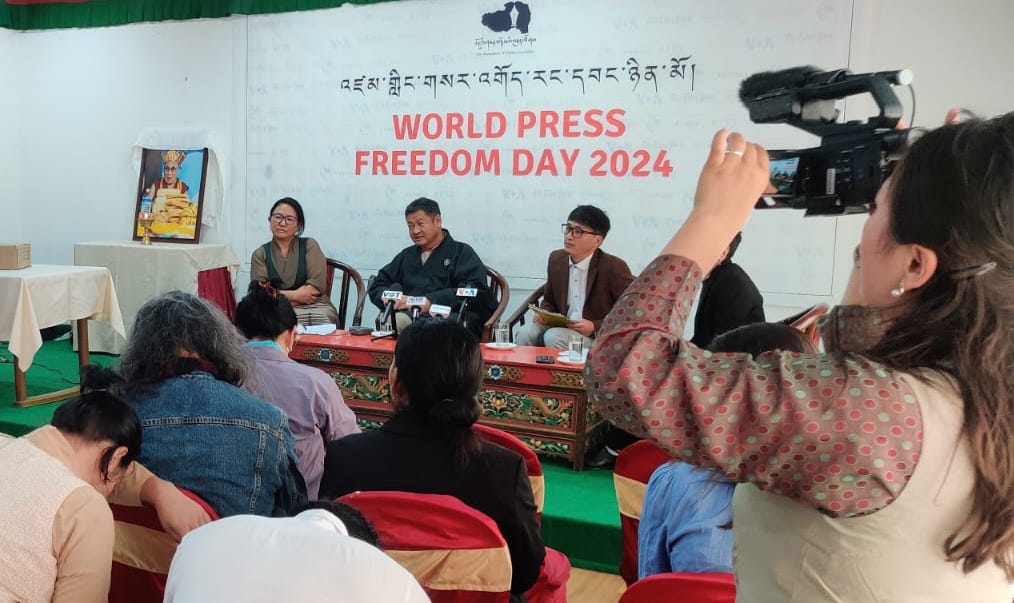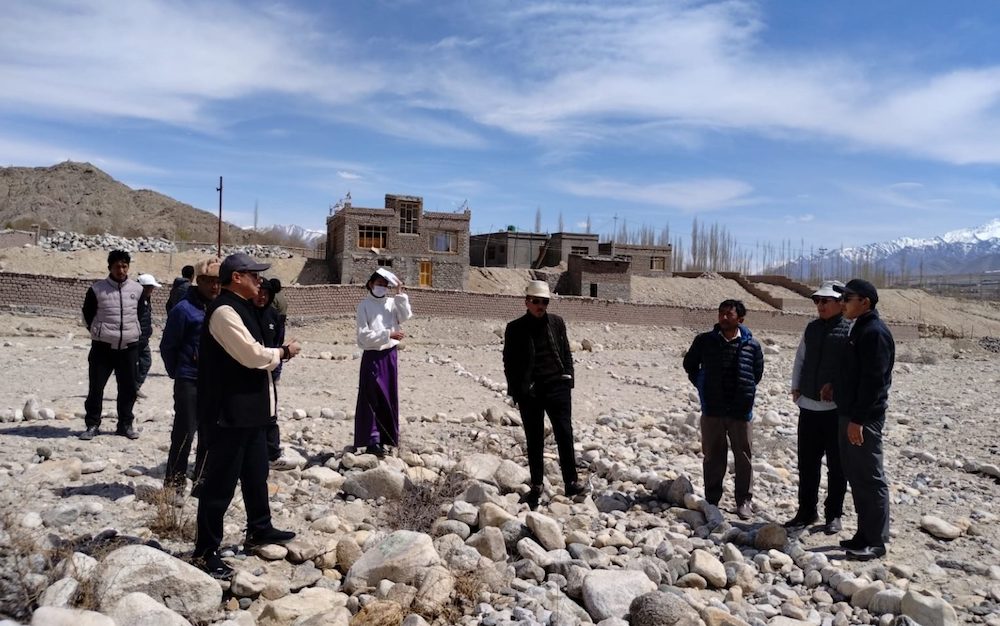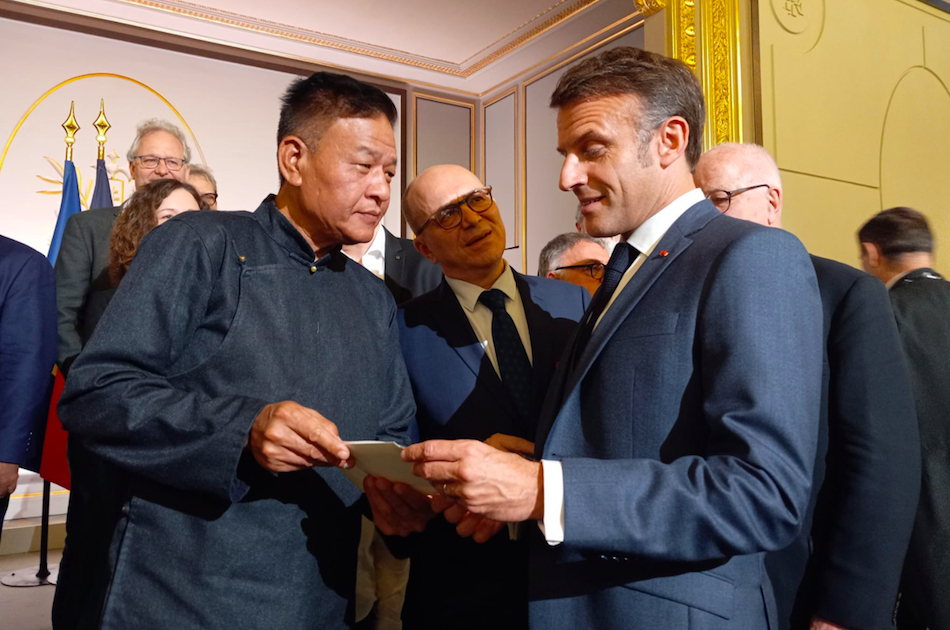By Anna Malpas
Staff Writer
 As the Chinese authorities were putting street protests in Lhasa down by force, members of Moscow’s tiny Tibetan community criticized the crackdown and Russia’s decision not to make a public judgment on the conflict.
As the Chinese authorities were putting street protests in Lhasa down by force, members of Moscow’s tiny Tibetan community criticized the crackdown and Russia’s decision not to make a public judgment on the conflict.
The clashes, which by some accounts have killed as many as 80 people, have left the small group feeling even more cut off from home.
“It’s very frustrating,” said Dhondup Shola, director of Tibet restaurant on Kamergersky Pereulok, off Tverskaya Ulitsa, which acts a meeting place for local Tibetans and sympathizers. “So many things are happening in Tibet and we can’t do anything.”
Tibetans living in Moscow, who rarely number more than 10, and their supporters were hoping to hold a peaceful demonstration outside the Chinese Embassy, Shola said Tuesday, but the authorities have turned down such applications “for many years.”
The last application was submitted for an event on March 10, the 49th anniversary of the Tibetan National Uprising, he said, adding that he did not know the official reason for the refusal.
Moscow has offered little in the way of official comment on the crisis in Tibet, and some of the urgency faded Tuesday as the situation appeared to stabilize. China’s provincial government in Tibet said 105 activists had surrendered, and Chinese Premier Wen Jiabao described Lhasa as calm, Bloomberg reported.
The Russian Foreign Ministry released a statement Monday saying it hoped that the Chinese authorities would take all necessary steps to end the street protests and calling the situation “an internal affair.”
The statement said Russia would not support a boycott of the Beijing Olympics over Tibet, although the ministry did issue a travel warning for Russian citizens.
The director of Moscow’s Tibetan Cultural Center, who goes by the single name Tashi, called the Russian statement predictable, pointing to the country’s close relationship with China.
“This position from Russia has been the same for many, many years,” he said.
Tashi acts as the unofficial representative of the Tibetan government-in-exile, although he has no diplomatic accreditation from Russia, which recognizes Tibet as part of China.
A portrait of the Dalai Lama hangs in the center, which is registered as a cultural organization.
Tashi said he was not aware of any more than 10 Tibetans living in the city permanently, while he put the number for the whole country at about 40, most of whom are Buddhist monks.
Born in Tibet, Tashi was raised in India and studied and went to university in Soviet Ukraine. Fluent in Russian, he came to Moscow in 1993 to set up the center.
Nevertheless, he hopes to return to Tibet.
“Of course, everybody dreams of returning to his own land,” he said.
Tashi said poor treatment of Tibetans was as much to blame for the current unrest as any yearning for independence.
“First, it’s because of Chinese misrule in Tibet,” he said. “Second, people in Tibet feel discrimination and violation of human rights.”
He complained of high unemployment among ethnic Tibetans and a mass influx of ethnic Chinese into the region.
“Ultimately, people got tired of waiting for some positive results,” he said. “The time has come to decide the future of Tibet.
He was unaware, however, of any plans to protest in Moscow.
“I have no knowledge. It’s totally up to the people,” he said. “If someone is willing to do something, they should do it within the laws of Russia.”
Tashi called on the United Nations to send observers, and for the Red Cross and Medecins Sans Frontieres to be allowed in to treat injured protesters, who cannot go to Chinese-run hospitals.
“We demand that the United Nations send representatives to Tibet and carry out an investigation,” he said.
He has no direct contact with Tibetans inside Tibet, which is “completely closed,” he said.
Restaurant director Shola said he got his information from Phayul.com, an English-language web site run by Tibetan exiles, and Euro News.
“I don’t watch the Russian news, because they don’t tell the truth,” he said, adding that he was not in contact with relatives in Tibet because it could be dangerous for them.
While the number of Tibetans in Russia is minuscule, the number tied to the country through religion is significantly larger.
This week, traditionally Tibetan Buddhist communities in the republics of Kalmykia, Tuva and Buryatia held prayers for victims and expressed their support for the Dalai Lama.
The Kalmyk lama, Telo Tulku Rinpoche, released a statement on Saturday calling the protests “the result of the Chinese government’s determined wish not to listen to the voice of His Holiness the Dalai Lama, the Tibetan people and the world community.”
Prayers were held in Buddhist temples in the republic for the protest victims, the web site of Kalmykia’s central Geden Sheddup Choi Corling monastery said.
In Buryatia, Buddhist believers have been saying daily prayers for the victims, Choi-Dorzhi Budayev, the head of the Lamrim Tibetan Buddhist group, said by telephone from Ulan-Ude.
The official leader of Russia’s Buddhists, however, remained silent about events in Tibet. Budayev said Khambo-lama Damba Ayusheyev, who is based in Buryatia, had yet to make any public statement.
Ayusheyev could not be reached for comment Wednesday.
The head of Tuva’s Tibet Friendship Society, local politician Ulyana Opei-ool, said from Kyzyl that the society would not organize any protests to avoid exacerbating the situation. In 1997, she went on hunger strike for three days to support a Tibetan monk imprisoned in China.









